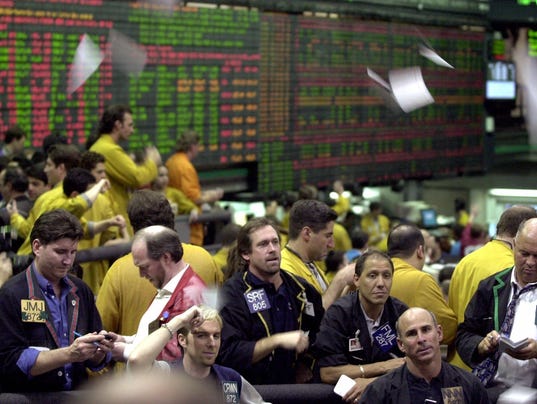Spoofing futures trading
JavaScript seems to be disabled in your browser.
You must have JavaScript enabled in your browser to utilize the functionality of this website. In , Congress passed the Dodd-Frank Wall Street Reform and Consumer Protection Act. The Act required new standards in the regulation of futures trading, particularly disruptive trading practices, anti-manipulation and setting position limits.
The legislation enhanced the CFTC's ability to prosecute price and market manipulation; with the objective of promoting the integrity of the markets and to protect market participants.
The Dodd-Frank Act also amended section 4c a of the Commodity Exchange Act CEA to make it unlawful for any person to engage in any trading practice or conduct which violates bids or offers; or demonstrates intentional or reckless disregard for the orderly execution of transactions during the closing period.
Spoofing is defined as bidding or offering with the intent to cancel the bid or offer before execution, submitting or cancelling bids and offers to overload the quotation system of a marketplace; or to submit multiple bids or offers to create the appearance of false market depth.
Spoofing is considered a disruptive trading practice and is viewed as "unlawful" under Section 4c a of the Commodity Exchange Act. In what is shaping up to be a closely followed case filed several months ago in United States District Court U.
CFTC Orders Citigroup Global Markets Inc. to Pay $25 Million for Spoofing in U.S. Treasury Futures Markets and for Related Supervision Failures
Commodity Futures Trading Commission v. Eric Moncada , the government alleges Moncada engaged in the manipulative scheme called spoofing, by manipulating bids and offers to create a false impression of market liquidity, the result being actual prices which did not reflect the economic fundamentals of supply and demand.
Citigroup Punished for Treasury Market Spoofing by Five Traders - Bloomberg
What this means is that CFTC could bring prosecution against traders who violate bids or offers under this subsection whether they did so with the deliberate intention of manipulating markets and prices, or even if their actions lacked a criminal intent, through no fault of their own. With a history dating back more than 90 years, the New York Institute of Finance is a global leader in training for the financial services and related industries with course topics covering investment banking, securities, retirement income planning, insurance, mutual funds, financial planning, finance and accounting, and lending.
The New York Institute of Finance has a faculty of industry leaders and offers a range of program delivery options including self-study, online and in classroom. NYIF Order History NYIF Learning Portal ExecSense Database.
About Us Membership Benefits China Contact Us Curriculum Faculty FAQ's Jobs India Market Insights. An article by New York Institute of Finance futures instructor Larry Schneider. This Is No Joke. I wouldn't Want to "Spoof" You.
US Trader Found Guilty In ‘Spoofing’ Case: Bottom LineSpoofing and Disruptive Trading Practices Spoofing is defined as bidding or offering with the intent to cancel the bid or offer before execution, submitting or cancelling bids and offers to overload the quotation system of a marketplace; or to submit multiple bids or offers to create the appearance of false market depth. So spoofing is a manipulative activity which often has the following elements: Thus, traders who violate bids or offers may be liable under this subsection regardless of whether they do so intentionally or negligently or even through no fault of their own.
About New York Institute of Finance With a history dating back more than 90 years, the New York Institute of Finance is a global leader in training for the financial services and related industries with course topics covering investment banking, securities, retirement income planning, insurance, mutual funds, financial planning, finance and accounting, and lending.
Advanced Risk Management Professional Certificate 17 Jul - 21 Jul 9: Market Risk Management 19 Jul - 19 Jul 9: Credit, Liquidity and Operational Risk Management 20 Jul - 20 Jul 9: Risk Capital and Enterprise Risk Management 21 Jul - 21 Jul 9: Pricing and Valuation of Bonds 24 Jul - 25 Jul 9: Fixed Income Instruments and Markets 26 Jul - 27 Jul 9: Yield Curve Analysis - Online - to.

Risk Management Professional Certificate - Online - to. Project Finance and the Public Private Partnership Professional Certificate: Brokerage Operations Professional Certificate: Electronic Trading in Financial Markets - Online - to.